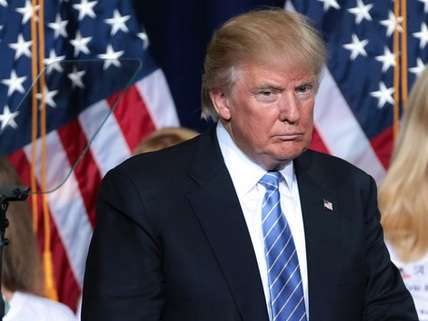If Brett Kavanaugh Drops Out, Will Trump Pick Amy Coney Barrett?
Understanding what happens next if the Kavanaugh nomination falls apart.

What happens if Supreme Court nominee Brett Kavanaugh drops out of consideration, or is voted down outright by the U.S. Senate, over the sexual assault allegations made against him by Christine Blasey Ford? What does President Donald Trump do then? Specifically, who does Trump pick to replace Kavanaugh to replace Justice Anthony Kennedy?
One name among the rumored finalists on Trump's SCOTUS shortlist jumps out as a likely contender. That name is Judge Amy Coney Barrett of the U.S. Court of Appeals for the 7th Circuit.
Barrett, 46, was confirmed to the 7th Circuit just last October after an extremely contentious confirmation hearing before the Senate Judiciary Committee. In particular, Barrett, a committed Catholic who has written frequently about matters of faith and law, was sharply queried by Sen. Diane Feinstein (D-Calif.) about whether her religious views would prevent her from serving as an impartial jurist. "The dogma lives loudly within you, and that's of concern when you come to big issues that people have fought for for years in this country," Feinstein declared.
Feinstein's remarks transformed Barrett into an overnight folk hero among social and religious conservatives, who saw the Democratic senator as launching a repugnant attack on one of their own. Those same conservatives would undoubtedly relish the opportunity to see Barrett square off against Feinstein again in the context of a Supreme Court confirmation battle.
What is more, in an ironic twist for Kavanaugh's liberal opponents, folks on the left may well view Barrett as the more "conservative" of the two.
What I mean by that is that while Kavanaugh took great pains during his confirmation hearings to sing the praises of stare decisis and spoke repeatedly of respecting Supreme Court precedents like Roe v. Wade, Barrett is already on record in favor of the controversial idea that the Supreme Court may overturn a precedent simply because a new majority disagrees with the methodological approach of its predecessor.
As Barrett argued in a 2013 Texas Law Review article, given the sharply competing interpretive methodologies on the current Supreme Court, "a more relaxed form of constitutional stare decisis is both inevitable and probably desirable, at least in those cases in which methodologies clash." She added: "I tend to agree with those who say that a justice's duty is to the Constitution and that it is thus more legitimate for her to enforce her best understanding of the Constitution rather than a precedent she thinks clearly in conflict with it." Statements like that from Barrett will be music to the ears of anti-Roe activists.
In short, if the Kavanaugh nomination falls apart, Trump has a ready replacement whose elevation will undoubtedly thrill many of his supporters on the right.

Show Comments (310)